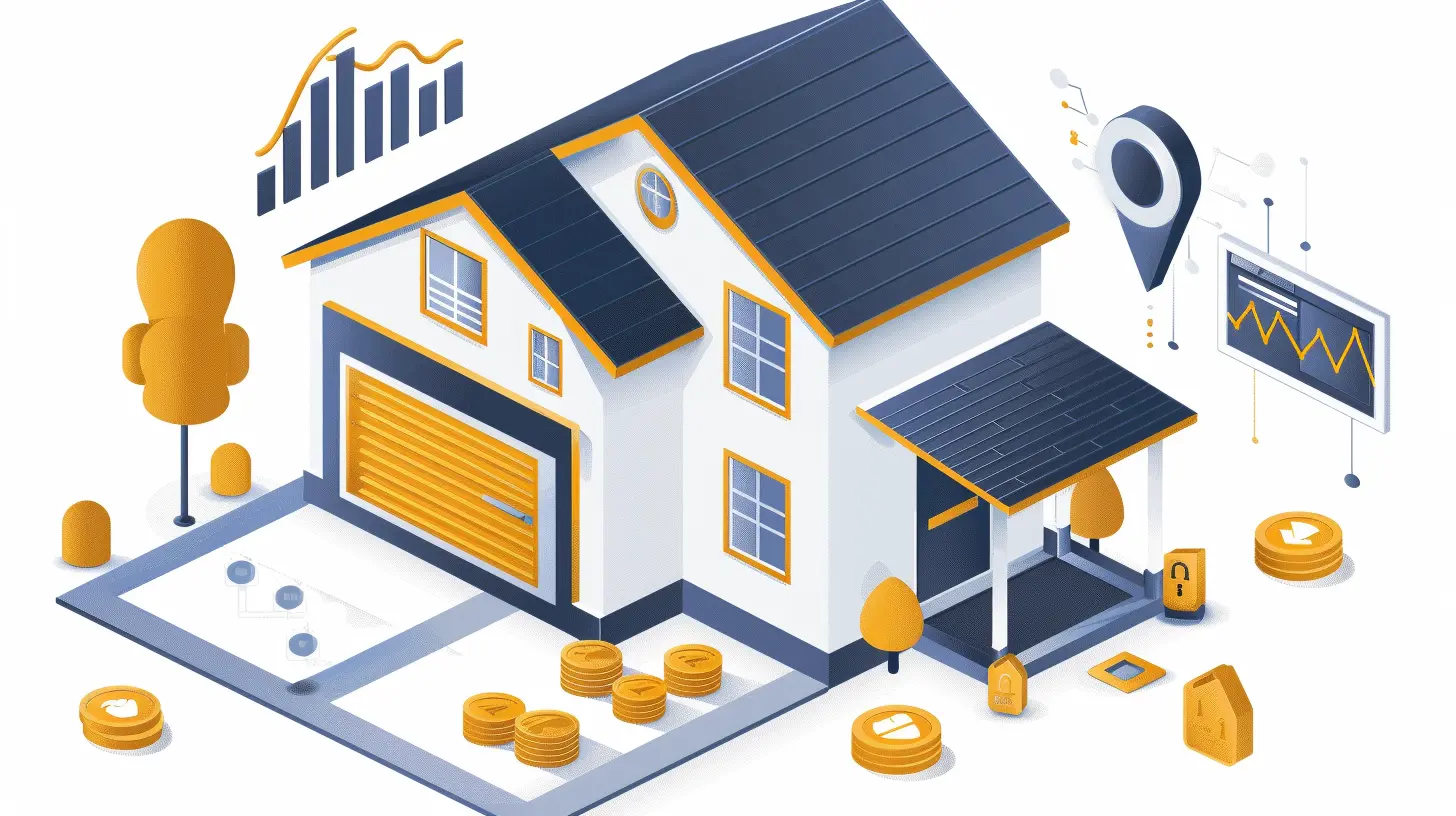The Role of Big Data in Modern Real Estate Platforms
22 March 2025
Imagine you’re house hunting in this digital age. Instead of flipping through newspaper listings or driving aimlessly around neighborhoods searching for “For Sale” signs, you’re opening an app. With just a few clicks, you get personalized recommendations, neighborhood insights, price trends, and even virtual tours. Sounds like magic, right? Nope—it’s Big Data working behind the scenes!*
Big Data has drastically changed the way we buy, sell, and even think about real estate. It’s a game-changer, and if you’ve ever wondered how platforms like Zillow, Redfin, or Realtor.com seem to know what you want before you even know it yourself, then buckle up! Let’s dive into the world of Big Data in real estate and uncover how it’s transforming the industry—one gigabyte at a time. 
What Is Big Data, Anyway?
Okay, before we go full throttle into how Big Data impacts real estate, let’s pause for a second and tackle the basics. What exactly is Big Data?In simple terms, Big Data refers to gargantuan sets of raw information—think petabytes of data. What makes Big Data special isn’t just its size; it’s the ability to analyze all that information to uncover patterns, trends, and insights. It’s like having a crystal ball—but instead of fortune-telling, it’s data-telling.
Now, in real estate, this data includes everything from housing prices and buyer preferences to crime rates, school rankings, commute times, and even how often it rains in a particular neighborhood (because, hey, no one wants soggy Sundays all year round). 
How Big Data Powers Real Estate Platforms
So, where does Big Data fit into modern real estate platforms? Well, think of these platforms as your personal concierge—but instead of fancy suits, they’re wearing algorithms. Thanks to Big Data, they can match you with your dream home faster than your friend’s awkward blind date setup. Here's how:1. Hyper-Personalized Recommendations
Ever noticed how Netflix seems to know what you’re in the mood for before you do? Real estate platforms are pulling the same trick. Big Data analyzes everything—your budget, preferred location, number of bedrooms, and even lifestyle indicators you didn’t realize mattered.Say you’ve been browsing homes with large backyards. The platform’s algorithm might pick up on that and nudge you toward listings with sprawling lawns. It’s like having a mind reader... minus the creepy vibe.
2. Market Insights for Buyers and Sellers
Gone are the days of blindly guessing how much to offer for a home. With Big Data, real estate platforms provide instant access to valuation insights, market trends, and price comparisons. Sellers can gauge what similar properties in their area are going for, while buyers can see if a listing is overpriced.In short, Big Data demystifies the market. It’s like having a cheat sheet for acing your home-buying (or selling) test.
3. Neighborhood Analytics
Want to know more about the vibe in a potential neighborhood? Big Data has you covered. It gathers mountains of information on schools, crime rates, local amenities, commute times, and even walkability scores.For instance, if you’re someone who loves grabbing coffee from a local café in the morning, the platform might steer you towards a neighborhood with a charming coffee shop around every corner. Big Data doesn’t just help you find a home—it helps you find a lifestyle.
4. Predictive Analytics for Investors
Calling all real estate investors! Big Data isn’t just for homebuyers. Investors use it to predict future trends, uncover undervalued properties, and calculate potential rental income.It’s like playing the stock market, but instead of buying Apple shares, you’re snagging that up-and-coming duplex downtown. With the right insights from Big Data, investors can make smarter, data-driven decisions with less risk. 
Big Data and Smart Pricing
Alright, let’s talk dollars and cents. One of the coolest things Big Data does is smart pricing. Gone are the days when you had to rely on gut feelings or outdated comparisons. Real estate platforms use algorithms to analyze millions of data points to generate a precise property valuation.How It Works:
- It crunches historical sale prices, market trends, property features (like square footage, upgrades, etc.), and even things like proximity to parks or schools.- The result? Dynamic pricing that gives sellers a competitive edge while offering buyers a fair market value.
Think of it as the Goldilocks principle of pricing: not too high, not too low—just right. 
Changing the Real Estate Game with AI and Machine Learning
Wait, there’s more. Big Data isn’t running the show solo. It’s besties with Artificial Intelligence (AI) and Machine Learning (ML), forming a sort of “power trio” in the digital real estate space.AI and ML help real estate platforms make sense of all that data faster than you can say “mortgage calculator.” Together, they can:
1. Spot emerging trends before they’re obvious to human analysts.
2. Improve search algorithms to show homes that are actually relevant.
3. Offer real-time customer service using chatbots powered by—you guessed it—Big Data.
It’s like having a team of super-smart robots working tirelessly to make your real estate journey easier.
Big Data’s Role in Virtual Tours and 3D Home Models
Remember when you had to physically visit every house you were interested in? Exhausting, right? Thanks to Big Data, virtual tours are now a thing—and they’re awesome.Here’s the Deal:
Big Data enables the creation of realistic 3D models and virtual tours by collecting visual data from past sales, architectural plans, and even drone footage.This means you can “walk” through a property from the comfort of your couch, in your pajamas, with a bowl of popcorn. That’s the kind of progress we love to see.
The Challenges (Because Nothing’s Perfect)
Look, we’d love to say Big Data is the superhero of real estate, but even Superman has his kryptonite. Here are a few challenges:1. Data Privacy Concerns: With so much personal information being collected, there’s always the risk of data breaches or misuse. No one wants their home search history exposed!
2. Over-Reliance on Algorithms: While useful, algorithms aren’t perfect. Sometimes, they can misinterpret preferences or over-prioritize certain features.
3. Accessibility Issues: Smaller real estate agencies might struggle to keep up with the Big Data giants, leading to competitive disadvantages.
Like any tool, Big Data is only as good as the people (and platforms) using it.
What’s Next for Big Data in Real Estate?
If you thought we’ve seen it all, think again! The future of Big Data in real estate looks even brighter. Imagine this:- Smart Home Integration: Platforms might use data from connected devices (like thermostats or smart speakers) to personalize recommendations even further.
- Augmented Reality (AR): You could "place" your furniture in a potential home virtually, all thanks to data-backed AR tools.
- Blockchain for Transparency: Big Data combined with blockchain technology could make transactions faster, safer, and more transparent.
The possibilities are practically endless!
Why It All Matters
So, why should you care about Big Data in real estate? Because it’s changing the way you experience one of the most significant decisions in your life. Whether you’re buying your first condo, selling your family home, or investing in rental properties, Big Data is there to make the process smoother and smarter.It’s like having a wise, tech-savvy friend who just gets you—and let’s be honest, we could all use one of those when it comes to navigating the dizzying world of real estate.
all images in this post were generated using AI tools
Category:
Real Estate SoftwareAuthor:

Kingston Estes
Discussion
rate this article
10 comments
Georgina McTigue
This article effectively highlights how big data transforms real estate by enhancing decision-making, pricing accuracy, and market predictions. However, it could benefit from more examples of successful implementations. Overall, it’s a solid overview for anyone looking to understand the impact of technology in the real estate sector.
April 10, 2025 at 10:32 AM

Kingston Estes
Thank you for your feedback! I'll consider adding more examples of successful implementations in future revisions to enhance the article further.
John Rivera
Big data enhances efficiency, but privacy concerns remain.
April 8, 2025 at 2:32 AM

Kingston Estes
Absolutely, while big data can streamline processes and improve decision-making in real estate, we must address privacy concerns to ensure consumer trust and compliance with regulations.
Beau Perry
Great insights on the impact of big data in real estate! It's fascinating to see how data analytics can enhance decision-making and improve user experiences. I appreciate how you highlighted both the opportunities and challenges. Looking forward to seeing how this technology continues to evolve in the industry!
April 5, 2025 at 11:45 AM

Kingston Estes
Thank you for your thoughtful comment! I'm glad you found the insights valuable. Exciting times ahead for big data in real estate!
Fennec Weber
Big data revolutionizes real estate by enhancing market analysis, improving property valuations, and personalizing client experiences. It empowers agents and buyers with predictive insights, streamlining transactions and investment decisions. As platforms leverage data analytics, the industry becomes more efficient and responsive, ultimately benefiting all stakeholders involved in the real estate ecosystem.
April 4, 2025 at 4:40 AM

Kingston Estes
Thank you for your thoughtful comment! I completely agree that big data transforms real estate by improving analysis, valuations, and client experiences, making the industry more efficient for everyone involved.
Mateo McGrath
Oh, sure! Because who wouldn’t want to rely on a bunch of algorithms to decide their dream home? Nothing says "cozy living" like being matched with a property based on data points instead of, you know, personal taste!
April 3, 2025 at 8:24 PM

Kingston Estes
I understand your concerns! While algorithms might seem impersonal, they can enhance the home-buying experience by providing tailored recommendations, making the search process more efficient. Personal taste still plays a crucial role alongside data insights.
Iris Alexander
Embrace the power of big data! It's transforming real estate, unlocking opportunities, and empowering both buyers and sellers for success!
April 2, 2025 at 8:59 PM

Kingston Estes
Absolutely! Big data is revolutionizing real estate by providing valuable insights that enhance decision-making for both buyers and sellers.
Lillian Gates
Fascinating insights! I wonder how big data influences buyer behavior and property valuation. Could this technology redefine our understanding of market trends and investment opportunities in real estate?
April 2, 2025 at 11:14 AM

Kingston Estes
Thank you! Absolutely, big data significantly impacts buyer behavior and property valuation, offering deeper insights into market trends and investment opportunities, ultimately redefining the real estate landscape.
Halle McMaster
Big data: turning houses into homes and making real estate search as easy as pie!
March 30, 2025 at 8:57 PM

Kingston Estes
Thank you! Big data truly transforms the real estate experience, making it more personalized and efficient for everyone.
Flint White
In data's dance, dreams align; modern homes blossom, where insights intertwine.
March 29, 2025 at 12:40 PM

Kingston Estes
Thank you! I'm glad you enjoyed the metaphorical connection between data and the evolving landscape of real estate. It truly highlights the transformative power of insights in shaping modern homes.
Sarah Gomez
This article effectively highlights how big data revolutionizes real estate platforms by enhancing property valuation, improving client targeting, and streamlining transactions. Embracing data-driven insights not only boosts efficiency but also elevates the overall customer experience in the industry. Great read!
March 28, 2025 at 7:17 PM

Kingston Estes
Thank you for your thoughtful feedback! I'm glad you found the article informative and relevant to the evolving landscape of real estate.
MORE POSTS

Merging Aesthetics and Energy Efficiency in New Home Builds

The Importance of Location in the House Flipping Game

How to Power Your Tiny Home with Solar Energy

How to Evaluate the Right Neighborhood for Your Investment

Leveraging Technology to Streamline Your House Flipping Business

Top Tips for Growing Your Real Estate Network with Purpose

Is Homeownership Still the American Dream?